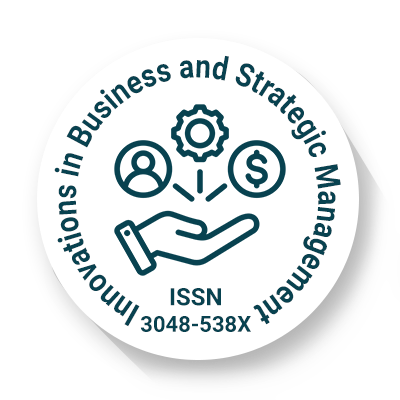
Innovations in Business and Strategic Management
OPEN ACCESS

OPEN ACCESS

Strategic Innovation Management (SIM) is essential in today's dynamic business environment, combining strategic management and innovation theory to foster competitive advantage through innovative practices. This review provides a comprehensive overview of SIM, covering its definition, importance, core concepts, key frameworks, implementation strategies, and challenges. SIM aligns innovation activities with long-term strategic goals, focusing on developing new products, business models, processes, and organizational structures for sustainable growth. Key concepts include incremental, radical, architectural, and disruptive innovation, innovation ambidexterity, open innovation, and business model innovation. Frameworks like the Innovation Value Chain, Ten Types of Innovation, Three Horizons of Growth, and the Innovator's Dilemma guide SIM practices. Effective implementation involves creating an innovation strategy, fostering an innovative culture, structuring for innovation, managing the innovation portfolio, and leveraging technology. Challenges include balancing short- and long-term goals, overcoming organizational inertia, managing risk, keeping pace with technological change, and attracting innovation talent. Future trends in SIM include sustainability-driven innovation, ecosystem innovation, AI-driven innovation, democratization of innovation, and agile and lean innovation. Advanced concepts such as Blue Ocean Strategy, Design Thinking, and ambidextrous organization models emphasize strategic approaches to creating uncontested market spaces and fostering a culture of experimentation. Emerging technologies like AI, IoT, blockchain, AR/VR, and 3D printing are reshaping SIM. Ethical considerations emphasize responsible, inclusive, and sustainable innovation practices. Mastering SIM is crucial for organizations aiming to lead and make a lasting impact in an increasingly complex and uncertain business landscape.